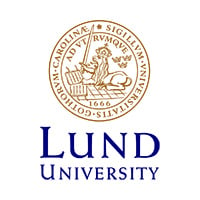Molecular Biology, focus on molecular genetics of telomere
Position Details (PhD Program)
Biology is the broad subject about all living things. It encompasses everything from processes at the molecular and cellular level to global processes at ecosystem level. The subject is divided into a range of sub-disciplines and specialisations. The PhD programme at the Department of Biology includes many of these specialisations, from molecular biology to applied ecology, from viruses and individual cells to evolutionary biology and global biodiversity. Taking on research studies at the Department of Biology generally means focusing on a delimited part of the research area of biology and may include field studies, experiments, theoretical studies, or a combination of these.
Work Duties
The main duties of doctoral students are to devote themselves to their research studies which includes participating in research projects and third cycle courses. The work duties will also include teaching and other departmental duties, up to 20%.
The doctoral student will join the research group of Marita Cohn, in the subject area of Molecular Genetics, as part of the Molecular Cell Biology unit. The research topic encompasses fundamental research on molecular mechanisms that are responsible for the maintenance of telomere function in eukaryotic model systems. Telomeres are the nucleoprotein structures protecting the ends of chromosomes and are normally maintained by the enzyme telomerase. However, telomerase-deficient cells may restore telomere function by using recombination-based pathways, so-called Alternative Lengthening of Telomeres (ALT). The PhD project will focus on elucidation of the genetic requirements and the molecular mechanisms responsible for the maintenance of telomeres in yeast cells, where both telomerase-dependent and ALT pathways are involved. The project is mainly experimentally oriented, using various molecular biology and biochemical methods and molecular genetic approaches, but will also comprise elements of bioinformatics and computational analyses. The PhD student is expected to contribute to the planning, execution and analysis of the experiments, as well as to writing manuscripts and grant applications. The work periodically requires long working days and working weeks in connection with sampling and assaying experiments.
Admission requirements
A person meets the general admission requirements for third-cycle courses and study programmes if he or she:
- has been awarded a second-cycle qualification, or
- has satisfied the requirements for courses comprising at least 240 credits of which at least 60 credits were awarded in the second cycle, or
- has acquired substantially equivalent knowledge in some other way in Sweden or abroad.
A person meets the specific admission requirements for third cycle studies in Biology if he or she has passed an independent project (for example a degree project) of at least 30 credits in a relevant subject and have good oral and written proficiency in English.
Additional requirements
- University studies including chemistry, biochemistry, molecular biology, molecular genetics.
- A university Master of Science degree (MSc) in Molecular Biology, with laboratory work experience in molecular biology and/or molecular genetics.
- Excellent oral and written proficiency in English.
- Highly motivated with strong ability to work independently as well as to collaborate within a research group.
In addition to the mandatory requirements, documented experience in the following areas will be considered as strong merits:
- Experience in independent laboratory work.
- Practical experience in molecular biology techniques and hybridization experiments using radioactive isotopes.
- Practical experience in working with yeast as a model system for molecular genetics research.
- Experience of teaching molecular genetic techniques to undergradute students.
Assessment criteria
Selection for third-cycle studies is based on the student’s potential to profit from such studies. The assessment of potential is made primarily on the basis of academic results from the first and second cycle. Special attention is paid to the following:
- Knowledge and skills relevant to the thesis project and the subject of study.
- An assessment of ability to work independently and to formulate and tackle research problems.
- Written and oral communication skills.
- Other experience relevant to the third-cycle studies, for example professional experience.
Terms of employment
Only those admitted to third cycle studies may be appointed to a doctoral studentship. Third cycle studies consist of full-time studies for 4 years. A doctoral studentship is a fixed-term employment of a maximum of 5 years (including 20% departmental duties). Doctoral studentships are regulated in the Higher Education Ordinance (1993:100), chapter 5, 1–7 §§.
Instructions on how to apply
Applications shall be written in English and include a cover letter stating the reasons why you are interested in the postgraduate education programme and in what way the research project corresponds to your interests and educational background. The application must also contain a CV, degree certificate and grade transcripts, and other documents you wish to be considered (eg. contact information for reference persons, letters of recommendation).



 Lund University
Lund University 